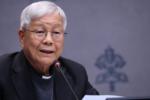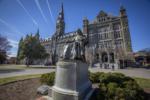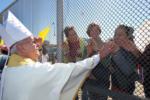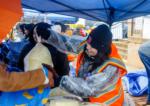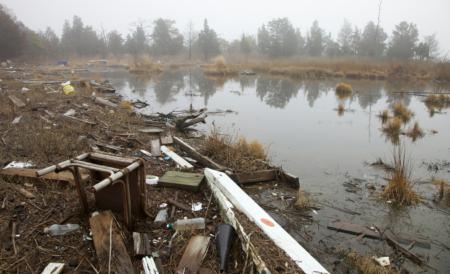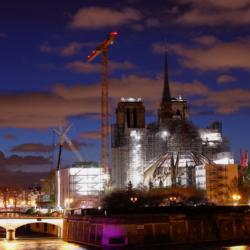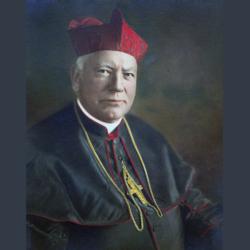Viewing the pope's encyclical through the eyes of Romano Guardini
Every outstanding thinker's ideas can be traced to the influence of great thinkers. In his recent encyclical letter on the environment, "Laudato Si'," Pope Francis mirrors much of the thinking of renowned theologian Father Romano Guardini, whom the pope studied in Germany.
During the 1950s, Father Guardini was deeply concerned for the world's future.
In his book, "Power and Responsibility," he wrote, "To the end of time there will be no human existence that does not live with peril. Awareness of this is lively, and not without the usual unworthy companions of fear, superficiality, the eat-drink-and-be-merry-now attitude we meet everywhere."
A society that is shallow and only concerned with the here-and-now makes Pope Francis anxious, because he fears our children are inheriting a world of "debris, desolation and filth."
Father Guardini and Pope Francis raise the question, What is our worldview? Are we to be served by the world or are we to serve it? Are we to live with little concern about the future or are we to be deeply concerned about its well-being?
Father Guardini worried, "One of the most universal and most disturbing symptoms of the shift in the human condition that we have (is) the matter-of-factness of the new man. ... It demonstrates further his unwillingness ... to display emotions of any kind, indeed, even to harbor them.
"But it also evinces a growing inability to see, a progressive cooling of the heart, an indifference to the people and things of existence. A common substitute for genuine feeling is sensation, that superficial ersatz-emotion excitement, which, though momentarily strong, is neither fruitful nor lasting."
The pope's encyclical on our environment is an emotional human cry to treasure earth's gifts, be deeply concerned about its future and to earnestly face the truth of the matter.
In his book, "The End of the Modern World," Father Guardini called for a "new order" and the virtues of earnestness and gravity.
He wrote, "Earnestness is the will to know what is really at stake; it must brush aside empty rhetoric extolling progress or the conquest of nature; it must face heroically the duties forced upon man by his new situation."
"This gravity," he said, "must be purer and stronger ... because it must restrain the chaos rising out of the very works of man."
Pope Francis' encyclical pulls no punches, thus causing uneasiness among those who are content with the "old order," getting through the day and avoiding the uncomfortable and being matter of fact, hoping troubles will disappear on their own.
FATHER HEMRICK IS A COLUMNIST WITH THE CATHOLIC NEWS SERVICE.
- FatherEugene Hemrick is a columnist for Catholic News Service




